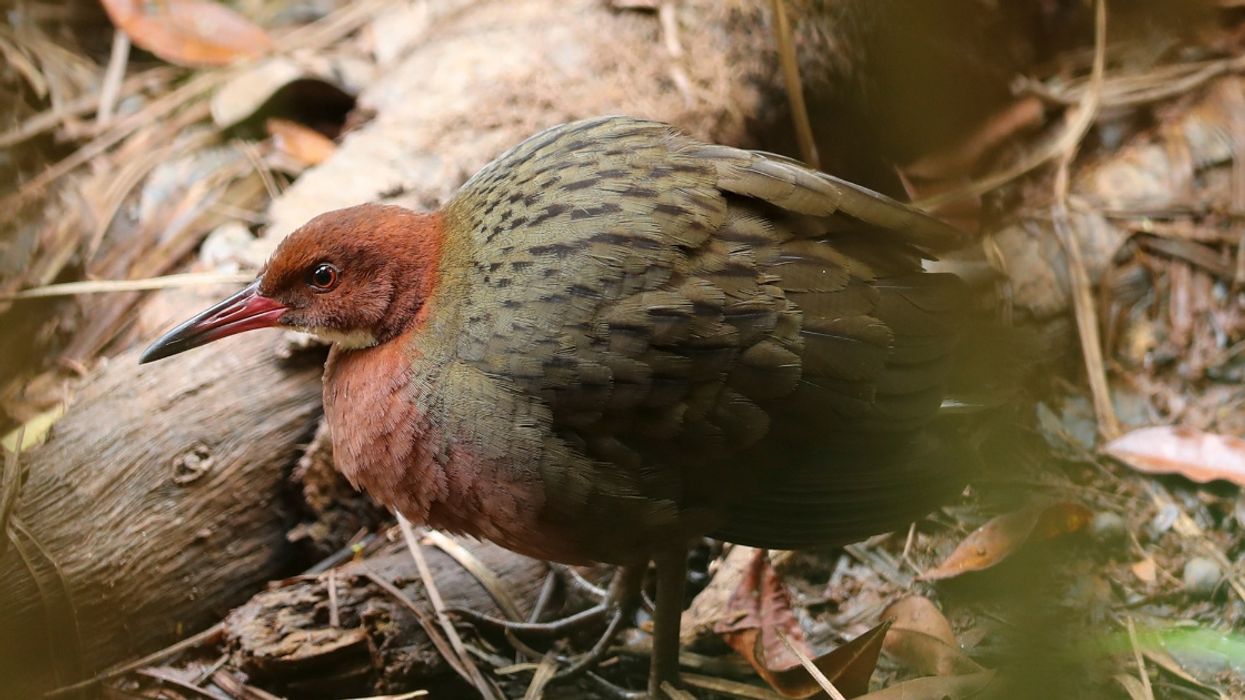Despite going completely extinct, a flightless bird known as a white-throated rail keeps evolving back into existence.
Through a process researchers call "iterative evolution" the sub-species keeps re-emerging.
No, this isn't a Jurassic Park joke.
Researchers from the University of Portsmouth and the Natural History Museum have been studying the white-throated rail. This chicken sized bird lives in Madagascar.
However, the species often colonizes other small islands. East of their native island is an atoll called Aldabra. It is here the species has evolved the same way multiple times to become flightless.
Lead researcher Dr. Julian Hume, avian paleontologist and Research Associate at the Natural History Museum, said,
"These unique fossils provide irrefutable evidence that a member of the rail family colonized the atoll, most likely from Madagascar, and became flightless independently on each occasion.
"Fossil evidence presented here is unique for rails, and epitomizes the ability of these birds to successfully colonize isolated islands and evolve flightlessness on multiple occasions."
That seems like a step back, doesn't it?
Iterative evolution is when the same traits appear from a common ancestor at different times in history.
Think of it as a controlled experiment for evolution. Given the same environmental factors on a specific species, what new traits appear?
The birds lose their ability to fly since the atoll has no natural predators and an abundance of resources. However, fossil evidence shows this ending poorly for the flightless birds.
When the sub-species appeared previously 136,000 years ago, the island happened to flood, killing off the original flightless variant.
Co-author of the study, Professor David Martill said,
"Conditions were such on Aldabra, the most important being the absence of terrestrial predators and competing mammals, that a rail was able to evolve flightlessness independently on each occasion."
Despite the depictions in pop culture, evolution doesn't always add new abilities, nor is it moving in a specific direction to make a species more human-like.
What we're saying is nature is crazy.
Rather, natural selection favors whatever helps the species survive, including instances of conserving energy. Without predators or competing mammals, the need to fly is wasted energy.
Professor Martill said,
"We know of no other example in rails, or of birds in general, that demonstrates this phenomenon so evidently.
"Only on Aldabra, which has the oldest paleontological record of any oceanic island within the Indian Ocean region, is fossil evidence available that demonstrates the effects of changing sea levels on extinction and recolonization events."








 @realDonaldTrump/Truth Social
@realDonaldTrump/Truth Social
 @pamspaulding/Bluesky
@pamspaulding/Bluesky @bravern1/Threads
@bravern1/Threads @WeinsteinLaw/X
@WeinsteinLaw/X





 @realDonaldTrump/Truth Social
@realDonaldTrump/Truth Social @GovPressOffice/X
@GovPressOffice/X Amber Punch Brown/Facebook
Amber Punch Brown/Facebook David Schwegman/Facebook
David Schwegman/Facebook Alison McKay Campbell/Facebook
Alison McKay Campbell/Facebook @wsu311/X
@wsu311/X Kevin Elmore/Facebook
Kevin Elmore/Facebook

 @obamaatredrobin/X
@obamaatredrobin/X
 @realDonaldTrump/Truth Social
@realDonaldTrump/Truth Social